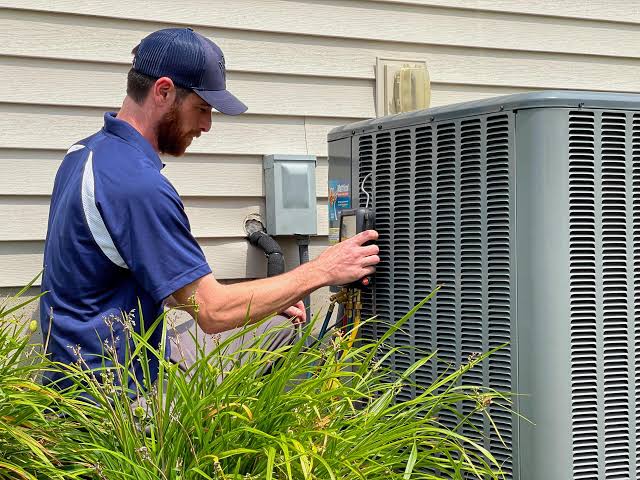1. Schedule Regular Professional Maintenance
Routine professional check-ups are crucial for keeping your AC in top condition. Certified technicians can identify issues early, such as refrigerant leaks or worn-out components, before they lead to costly repairs or a full breakdown. Professional maintenance also helps to ensure your cooling system operates at peak efficiency, reducing energy bills over time. If your AC hasn’t been serviced recently, consider looking into AC repair in Sandy to keep your system running smoothly.
2. Replace Air Filters Consistently
Dirty filters put unnecessary strain on your cooling unit, forcing it to work harder to circulate air. This not only reduces the machine’s efficiency but can also lead to overheating and damage. Experts recommend replacing air filters every 1 to 3 months, depending on your usage and whether you have pets or allergies. A clean filter promotes better airflow, ensuring your AC doesn’t have to work overtime to keep your home comfortable.
3. Keep the Outdoor Unit Clean and Clear
Your AC’s outdoor condenser unit needs proper airflow to function effectively, free from any obstacles that could block ventilation. Periodically check for leaves, dirt, debris, or overgrown plants around the unit, keeping at least 2-3 feet of clearance. A blocked condenser struggles to expel heat from your home, resulting in unnecessary wear and tear. Routine cleaning can save you costly repairs and improve overall system performance.
4. Optimize Your Thermostat Settings
Many homeowners unknowingly overwork their cooling unit by setting the thermostat too low or making drastic temperature changes. Instead, aim for an energy-efficient setting of around 78°F when you’re home and slightly higher when you’re away. Smart thermostats take efficiency a step further by learning your routine and adjusting temperatures accordingly. They help prevent unnecessary strain on your cooling unit without compromising your comfort.
5. Seal and Insulate Your Home
Surprisingly, your AC unit’s performance isn’t just about the system itself; your home’s insulation plays a huge role. Cracks, poorly insulated windows, and air leaks force your cooling unit to work harder to maintain your desired temperature. Use caulk or weatherstripping to seal any gaps, and consider upgrading attic or wall insulation for the best results. This simple investment protects your AC and shields your energy bills from going through the roof.
6. Use Fans to Ease the Load
Ceiling and portable fans help circulate cool air more evenly throughout your space. This added circulation allows you to raise your thermostat setting without sacrificing comfort. By reducing the reliance on your AC unit, fans can help extend its life while creating a more energy-efficient home. Just make sure to turn off fans when leaving a room to avoid wasting electricity.
7. Avoid Overworking Your System
Sometimes, we unintentionally push our AC units beyond their limits, especially during heat waves. Reschedule strenuous household tasks like laundry or cooking for cooler times of the day to reduce the heat load inside your home. Additionally, consider using blackout curtains or shades to block sunlight, which prevents heat gain and lessens the cooling system’s workload.
8. Upgrade When Needed
Even the most well-maintained systems have a lifespan, typically around 10–15 years. If your cooling unit is nearing the end of its life, upgrading to a modern, energy-efficient model may save you more money in the long run. Advanced features like variable-speed compressors and enhanced humidity control can also improve your home’s comfort while reducing energy usage.
Final Thoughts
Taking a proactive approach to maintaining your home’s cooling unit ensures optimal performance while saving costs on energy bills and repairs. With regular care and attention to efficiency, your AC can keep you comfortable for years to come. Remember, when in need of expert assistance, scheduling AC repair in Sandy with trusted professionals can make all the difference.






